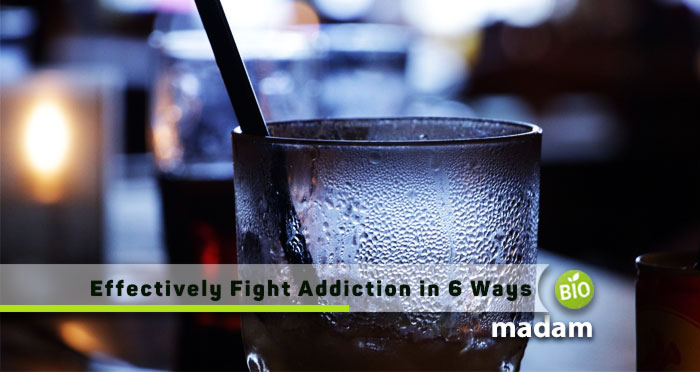Addiction is a complex and challenging condition that affects millions of people worldwide. It not only takes a toll on physical health but also severely impacts mental well-being. Overcoming addiction requires a comprehensive treatment approach that addresses both the addictive behaviors and the underlying mental health issues. In this article, we will explore six top treatments that have been proven effective in helping individuals fight addiction and improve their mental health.
Medication-Assisted Treatment (MAT)
Medication-Assisted Treatment (MAT) is an effective approach to addiction recovery that combines the use of medications with behavioral therapy. It has shown great promise in helping individuals overcome substance dependence, particularly in the case of opioids or alcohol.
By integrating medications like methadone, buprenorphine, or naltrexone with counseling and therapy, MAT provides a comprehensive solution to addiction. One example of a treatment program that offers MAT is a local outpatient rehab program that a lot of rehab centers actually offer. This type of program allows individuals to receive treatment while living at home and attending regular therapy sessions and medication monitoring.
The medications used in MAT can help manage withdrawal symptoms, reduce cravings, and stabilize brain chemistry, while the therapy component addresses the psychological and behavioral aspects of addiction.
Through a local outpatient rehab program that incorporates MAT, individuals have the opportunity to receive individualized care and support while maintaining their daily routines and responsibilities. They can access medical professionals who specialize in addiction treatment and benefit from the guidance and expertise of experienced therapists.
Cognitive Behavioral Therapy (CBT)
This therapeutic approach focuses on identifying and modifying negative thought patterns and behaviors that contribute to addictive behaviors. Through CBT, individuals learn effective stress coping strategies, stress management techniques, and problem-solving skills to develop healthier ways of thinking and behaving.
By challenging distorted thinking and replacing it with more realistic thoughts, CBT empowers individuals to break free from addiction and build resilience against relapse. CBT can be implemented in various settings, including individual therapy sessions or group counseling.

Trained therapists guide individuals through the process of self-reflection, identifying triggers, and developing strategies to overcome cravings. The goal of CBT is to equip individuals with the necessary skills to manage cravings, navigate challenging situations, and make positive behavioral changes.
Dialectical Behavior Therapy (DBT)
Dialectical Behavior Therapy (DBT) is a specialized form of therapy that has proven highly effective in treating addiction and mental health disorders, particularly borderline personality disorder. DBT combines individual therapy, group skills training, phone coaching, and therapist consultation to help individuals develop mindfulness, emotion regulation, distress tolerance, and interpersonal effectiveness skills. By learning these skills, individuals can better cope with the emotional turmoil and impulsivity often associated with addiction. DBT provides a structured and supportive environment for individuals to address underlying emotional issues, enhance their self-esteem, and build healthier relationships.
The therapy focuses on balancing acceptance and change, encouraging individuals to accept themselves and their current circumstances while simultaneously working towards positive change. Through DBT, individuals develop practical strategies to manage distressing emotions, reduce impulsive behaviors, and improve communication and interpersonal skills.
Twelve-Step Programs
Twelve-step programs, such as Alcoholics Anonymous (AA) and Narcotics Anonymous (NA), have long been regarded as invaluable resources for individuals seeking addiction recovery. These programs provide a supportive community of individuals with shared experiences, offering fellowship, guidance, and accountability.
Based on the principle of surrendering to a higher power and working through the twelve steps, these programs emphasize personal responsibility, self-reflection, and making amends. By actively participating in a Twelve-Step Program, individuals have the opportunity to engage in ongoing support, regular meetings, and sponsorship.
Through the shared stories and wisdom of fellow members, individuals can find hope, inspiration, and guidance along their recovery journey. These programs encourage individuals to take ownership of their actions, make positive changes, and build a solid foundation for long-term sobriety.
Additionally, Twelve-Step Programs provide a framework for personal growth and spiritual development, fostering a sense of purpose and meaning in life beyond addiction. By embracing the principles and practices of Twelve-Step Programs, individuals can find strength, connection, and a renewed sense of hope as they navigate the challenges of addiction and work towards a healthier, more fulfilling future.
Mindfulness-Based Interventions
These interventions, such as Mindfulness-Based Stress Reduction (MBSR) and
Mindfulness-Based Cognitive Therapy (MBCT), incorporate mindfulness practices like meditation, breathing exercises, and body scans to cultivate present-moment awareness and non-judgmental acceptance. By engaging in mindfulness practices, individuals can develop a greater sense of self-awareness, manage cravings and triggers, and cope with stress more effectively.
Mindfulness-based interventions also promote emotional regulation, reduce symptoms of anxiety and depression, and enhance overall well-being. These interventions encourage individuals to observe their thoughts, feelings, and bodily sensations without judgment or attachment. By practicing mindfulness, individuals can break free from automatic and impulsive reactions to cravings or triggers, gaining the ability to respond to these experiences more intentionally and constructively.
Mindfulness-Based Interventions offer individuals the tools to cultivate a compassionate and accepting attitude toward themselves and their experiences, fostering self-compassion and self-care. Through regular practice, individuals can develop a heightened sense of presence and engage in life more fully, reducing the likelihood of turning to addictive behaviors as a coping mechanism.

Holistic Approaches
Holistic approaches to addiction treatment recognize the interconnectedness of the mind, body, and spirit in the recovery process. These comprehensive approaches go beyond solely addressing the addiction itself and focus on treating the whole person. Holistic treatments often incorporate a variety of therapies and practices such as acupuncture, yoga, art therapy, equine-assisted therapy, and nutritional counseling.
By combining these elements, individuals are provided with a well-rounded support system that promotes healing and balance on multiple levels. Holistic approaches encourage self-care, stress reduction, and self-discovery, allowing individuals to explore their physical, emotional, and spiritual needs throughout the recovery journey. These approaches recognize the importance of a personalized and integrated treatment plan that nurtures the individual as a whole, fostering positive changes in lifestyle, mindset, and overall well-being.
Fighting addiction and improving mental health requires a multi-faceted approach that integrates various evidence-based treatments. From cognitive-behavioral therapies to medication-assisted treatment, mindfulness-based interventions to twelve-step programs, and holistic approaches, there are several effective strategies available. It’s important to remember that treatment should be tailored to individual needs and preferences.
Seeking professional help and support from addiction specialists and mental health professionals is crucial for successful recovery. By combining these top treatments, individuals can equip themselves with the tools and resources necessary to combat addiction, improve mental health, and embark on a journey toward lasting wellness and fulfillment.

Hi, they call me Jenna, and I am also known for achieving a gold medal during my Ph.D. in science life. I always had a dream to educate people through my utmost writing hobby. So, I chose this blogging path, and Biomadam gave me this opportunity to present for them. I now stand to entertain you. Continue reading my articles & discuss if you’ve any confusion through the comment section below.

